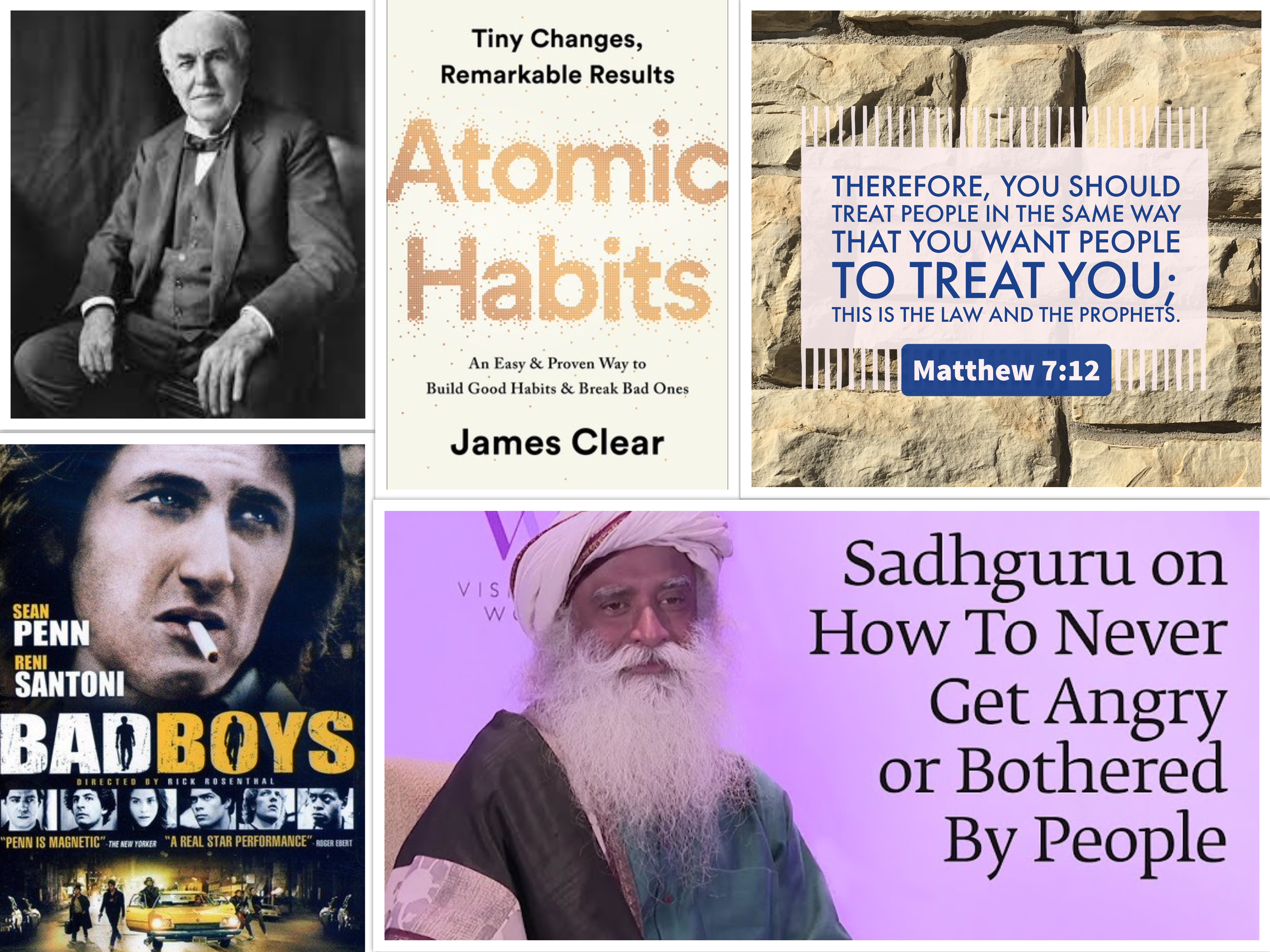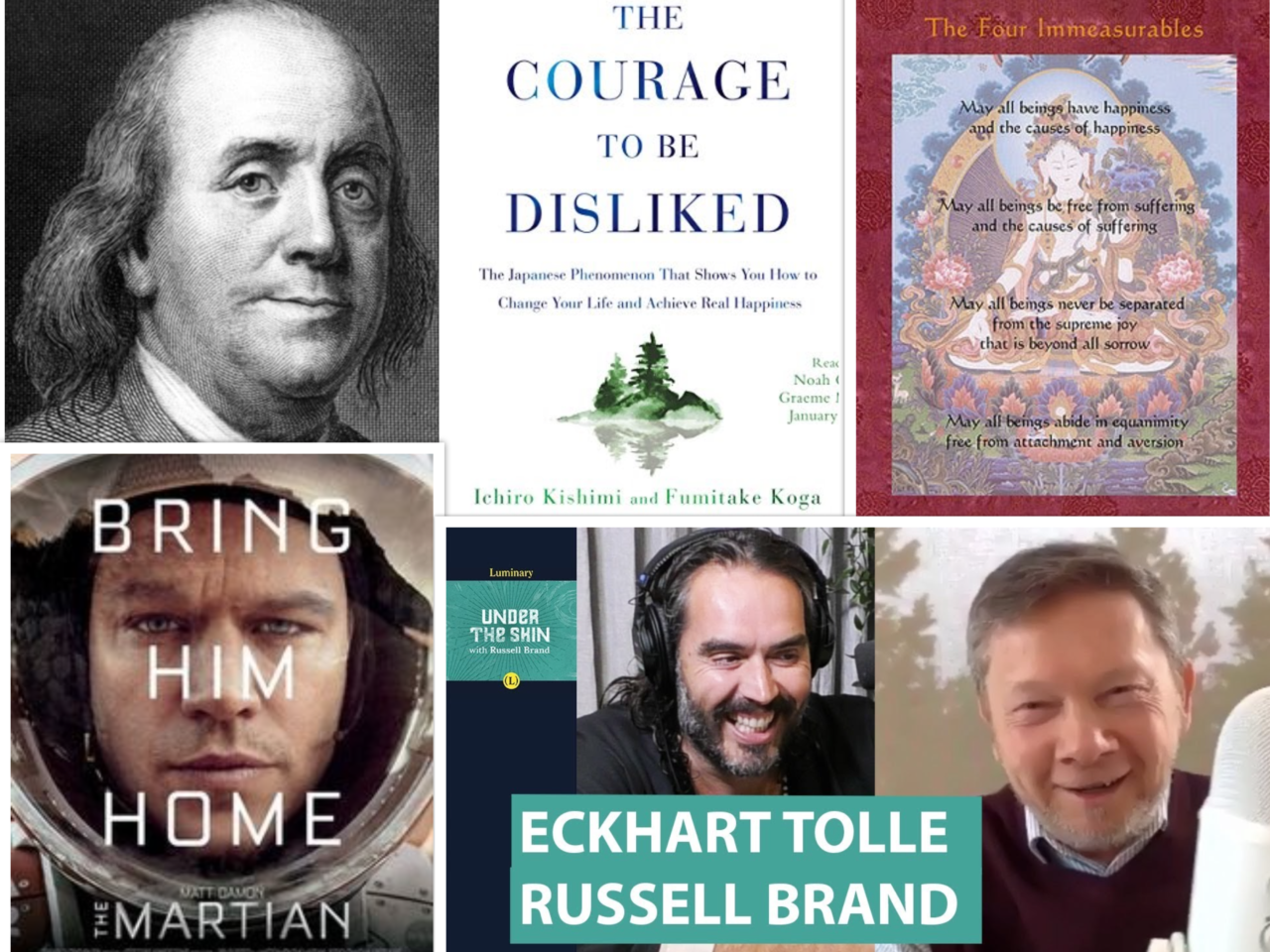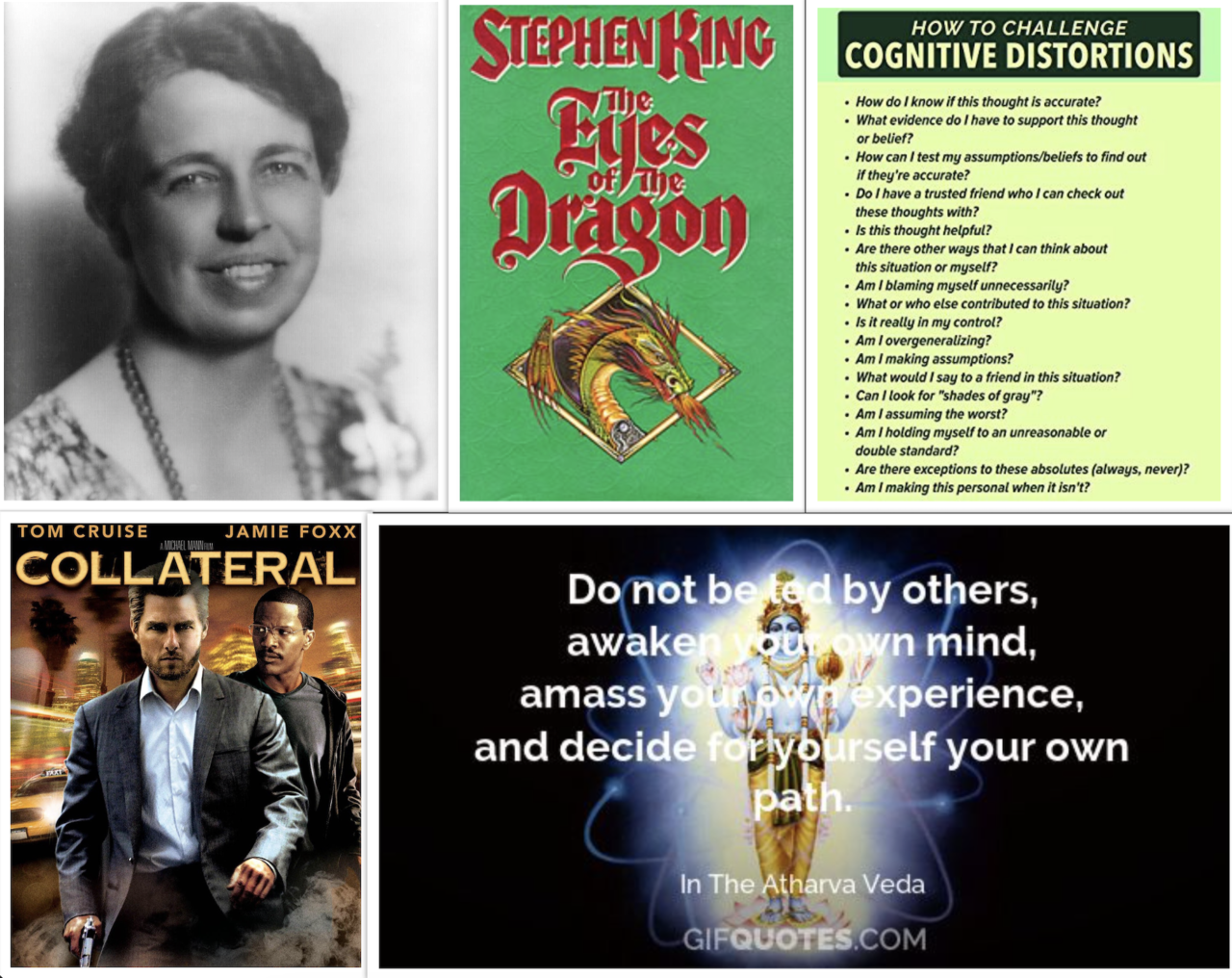Sunday Supplement #8 (July 4th, 2021)
Below is another Sunday Supplement with a quote worth sharing, a book worth reading, a movie worth watching, brainfood worth consuming, and a spiritual passage worth pondering.
I hope you take something away from this post that enriches your week ahead!
Quote of the Week:
“Many of life’s failures are people who did not realize how close they were to success when they gave up.”
– Thomas Edison
Book of the Week:
Atomic Habits – James Clear
James Clear is an expert on habit formation. The New York Times, Entrepreneur, and Time are a few of the many publications that featured his work. Clear’s work has also been used by teams in the NFL, NBA, and MLB. His website receives millions of monthly visitors where he writes about habits, decision-making, and continuous improvement.
Clear’s book, Atomic Habits, was a New York Times bestseller. The book helped me quit smoking and get back in shape. I accomplished both before, but I found myself burning out at various points. I would eventually use my willpower to push myself back to my best, but I struggled. Atomic Habits broke down concepts that made it easier to improve in areas of my life that I wanted to build up while letting go of things that weren’t good for me.
In the book, Clear goes over topics like identity, which help with starting good habits or breaking bad ones. For smoking, I always viewed myself as a smoker trying to quit smoking. He explains how that frame of mind is rooted in identity and makes it hard to stop. The shift of implementing the identity that I’m not a smoker was a simple concept with profound results.
There are many valuable strategies and systems that Clear explains in his book. One of my favorites is akin to the Edison quote above. Clear gives the metaphor of an ice cube melting to signify one’s dreams and goals. You can work for a long time to melt the ice cube. You can bring the temperature up to 31.9 degrees, and it will still be an ice cube. But you are so close to making water from your efforts. Don’t give up!
Atomic Habits is one of my favorite self-help/self-improvement books. It is an enjoyable read as well. There are many true stories from various inspirational people that will entertain and motivate. Check it out!
Movie of the Week:
Bad Boys (1983)
A Chicago youth Mick O’Brien plans to rob a rival’s drug deal. The heist goes horribly wrong, and O’Brien is sent to a juvenile detention center. He must face the consequences of his actions and decide if the path he’s currently on is one he wants to continue. The story gets more intricate as the film continues, but that is a quick summary without too many spoilers.
Sean Penn stars as Mick O’Brien in his first film released after the iconic Fast Times at Ridgemont High. His role as Spicoli in Fast Times at Ridgemont High created the possibility of being typecast as a comedic actor, but Penn made the deliberate decision to go in a different direction with Bad Boys. Penn’s performance was assisted with a brilliant supporting cast. Reni Santoni, Jim Moody, Esai Morales, Ally Sheedy, and Clancy Brown are some of many who brought immense quality to the screen.
Bad Boys was a small film and didn’t get too much recognition when it came out, but it received mostly favorable reviews. A testament to the quality of the script and Sean Penn’s performance is that actors like Tom Cruise and Kevin Bacon auditioned for the lead role.
It could have been a simple movie, but instead, it allowed for depth in the narrative, which resulted in complex characters and a powerful story. Even though the film isn’t well known, Bad Boys deserves to be recognized.
Brainfood of the Week:
A conversation with Sadhguru led by Angella Nazarian.
Sadhguru is an Indian yogi and bestselling author. He is a spiritual leader and founder of the Isha Foundation, a non-profit spiritual organization with over 9 million volunteers. Sadhguru’s YouTube page features many videos where he discusses spirituality, perception, and various other topics. His videos have just shy of 1 billion views in total.
Angella Nazarian is a philanthropist, bestselling non-fiction author, and conference organizer. She co-founded Looking Beyond, a non-profit organization dedicated to enriching the lives of children and young adults with special needs, and Visionary Women, a non-profit community, focused on engaging conversations with innovative leaders and funding high-impact initiatives for women and girls.
In this video, Nazarian speaks with Sadhguru about vision, willingness, and joy. Sadhguru discusses how willingness can be tested when other people do not act in accordance with one’s beliefs. However, it ultimately our choice in how we respond or react. This culminates in a direct link with how we experience joy.
Sadhguru’s discussion is a great lesson and reminder of how we can shape our world.
Closing Spiritual Passage:
“Therefore whatever you desire men to do for you, you shall also do to them; for this is the law and the prophets.”
– Matthew 7:12
There are a few bible passages I can quote off the top of my head. Matthew 7:12 one of them. But I didn’t know about the final part— “for this is the law and the prophets.” This part reminded me of the law of attraction. The basic principle of the law of attraction is positive thoughts bring positive experiences, and negative thoughts bring negative ones.
It always sticks out to me when different religions or philosophies I come across repeat similar passages. More often than not, you can find the same messages in different religions or spiritual practices. However, quotes like think positively don’t always have a positive reception when I’m not doing well. That is something I want to change.
In my first Sunday Supplement, I quoted Matthew 22:39— “Love thy neighbor as thyself.” I discussed how if you don’t love yourself, you won’t be able to love your neighbor. I then talked about filling your cup so you can help others. Matthew 7:12 reminds me that assisting others in filling their cup can fill yours as well. I believe in this way, Matthew 22:39 is linked to Matthew 7:12.
Trying to balance the two and knowing when I’m balanced is the goal I’m setting for myself going forward. I also plan on re-reading Atomic Habits to help me with that objective.
Be kind to yourself and others, and have a blessed week ahead!




